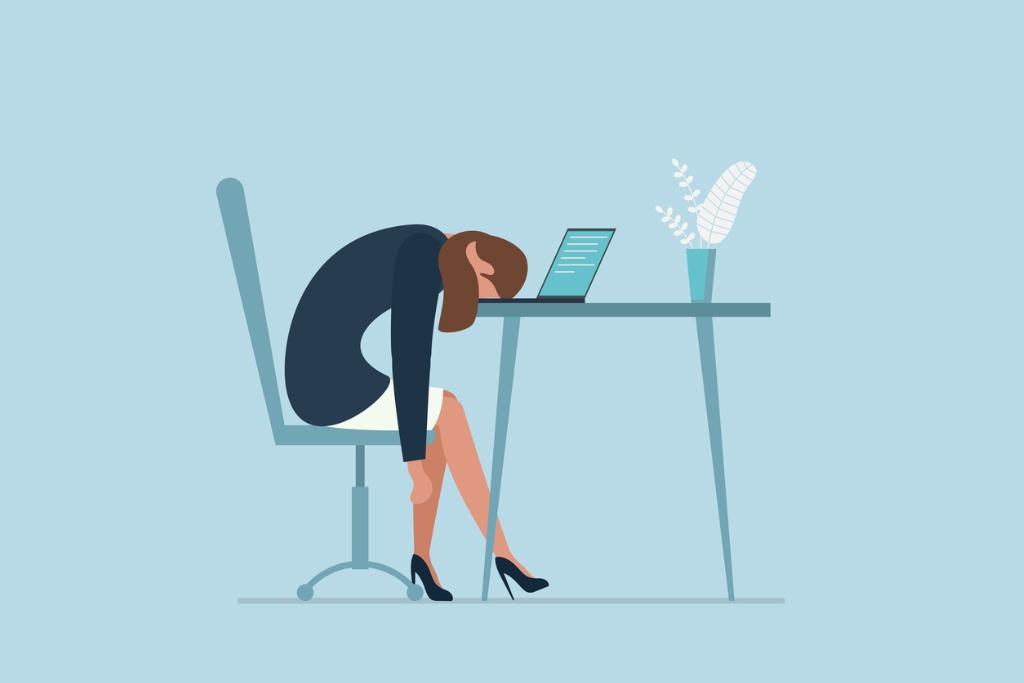Feeling Exhausted? Here's How Leaders Can Break the Cycle

Key Takeaways
- Brain fog is common during the COVID-19 crisis
- Personal leadership is about small actions, even when we feel off-balance
As I write this, I want another cup of coffee. I’ve been awake for four hours. I exercised, had a glass of water, drank a strong cup of coffee, wrote my daily to-do list and I still don’t feel clear. This is true despite a healthier diet than I’ve had in years, daily exercise, a very dedicated meditation practice (for over 10 years) and a healthy dose of self-care and support. Moreover, my family is healthy. I’m grateful, and it seems I have no excuse to feel as off-center as I do.
Meanwhile, as I write this, COVID-19 numbers are increasing, friends are getting sick or suffering from lingering effects after recovering from the virus and many people I know have lost loved ones — young and old. There are promising medical breakthroughs on the horizon, but for now the world is wobbling as physical health and economic health are seemingly at odds. There are social wars happening as people fight for basic rights, and another dividing line seems to be how people define freedom and justice — especially during this pandemic.
When I call my mother daily, she asks me what I’ve done. I’ve worked, I’ve cooked, I’ve checked in on my garden and maybe spoken to a few friends. I stay busy writing, exercising and walking with my husband and dog; I “Zoom” with my 97-year-old grandmother. Yet, time is slippery, and sometimes I don’t remember what I did that day versus the day before. I ask her what she’s done, and she mentions a few things, only to say it felt as though she did more.
Since March, many people have complained about brain fog. More specifically, I’ve heard the phrases, “I can’t believe I forgot that,” “I don’t feel like myself lately,” “I don’t know what’s wrong with me today,” or something similar at least a few times each week. Those who have not uttered such things because self-critique is not in their repertoire, well … let’s just say, I’m an observer, and I have witnessed memory inaccuracies or small errors in even the most put-together people.
Are we collectively confused and exhausted? I think so. Are we going to get through this? I think so. Is it going to be a while? I’m no expert, but all signs point to yes.
So what do we do when we’re already doing all the things that top-10 lists and research studies alike tell us will help? What do we do to exercise personal leadership when all the activities that promise us a percent increase in contentment or a percent increase in resilience are applied at once — and we still feel off?
My answer is to act. For me, this will mean voting. It will mean doing the work to vet news and understand statistical analysis in ways I never wanted to. It will mean proactively reaching out to friends and family no matter how foggy I feel. It will mean standing up for social justice. It will mean being kind to people who are on edge.
This is my personal list of actions. Fighting for social justice at a time when it is more important than ever is an action. Continuing to implement all the mindfulness, emotionally intelligent, healthy habits that we all know by now are supposed to help us is action. Doing everything that we can to show up as our best selves no matter what is action.
Sometimes we might feel like we’ll be caught in this fog forever, but if we act in some small way every day, we’ll be stronger by the end of this battle. Small actions now are about exercising personal leadership, which means doing what is best for our communities, society and the world.
Sources:
American Psychological Association: “The Role of Resilience in the Face of COVID-19”